
Kyle Harris

Audio By Carbonatix
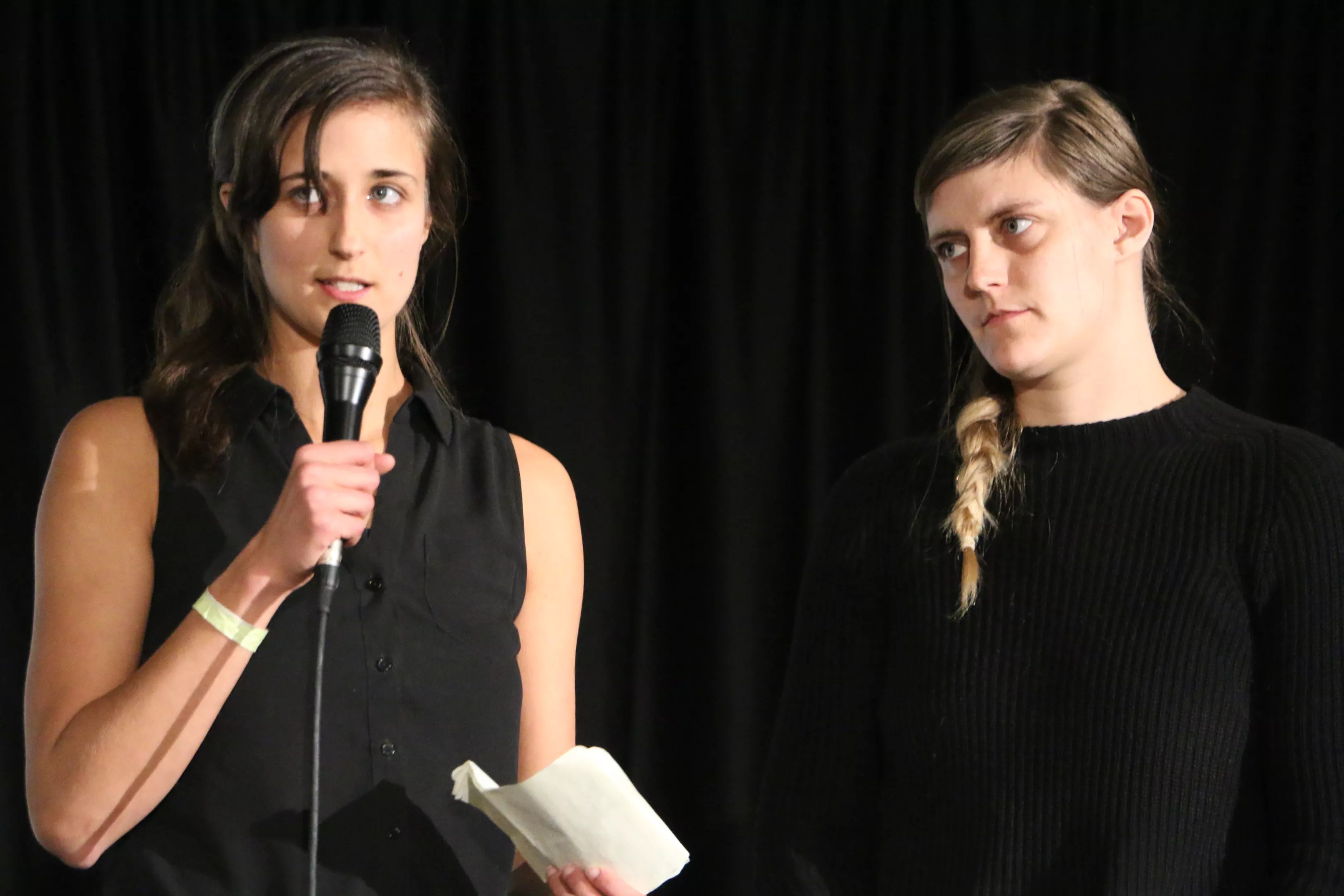
Laura Conway and Madeline Johnston of Amplify Arts Denver talk about the importance of DIY spaces.
Kyle Harris
DIY stands for “Do it yourself,” not “Pay a pro to do it for you.” Yet that sums up a Denver planner’s advice to DIY artists — many broke, all wanting to avoid a catastrophe that led to the Ghost Ship warehouse fire that killed 36 people in Oakland in December.
Wednesday night, at a Community Forum on Safe Creative Spaces, city officials brought together leaders of the Denver planning department, the fire department and Denver Arts & Venues to talk to artists about how they can stay safe in their spaces.
The city’s message to the creative community: Groups — from nonprofits and art districts to the Department of Environmental Health, zoning inspectors and firefighters — are here to help. For thirty days, fire inspectors will offer free inspections of DIY spaces, looking for life-threatening fire-code violations to correct. All interested parties need to do is invite the inspectors over. Of course, these inspections could lead to more closures and evictions, something city brass didn’t mention.
To DIY artists in the crowd, the city’s offers and advice seemed woefully out of touch at best, malicious at worst.
After the meeting, two big questions loomed for the artists: Why would a community trust fire inspectors who recently shut down underground music venues Rhinoceropolis and Glob and pushed people living there into homelessness? And how would artists who have built their lives with spit and glue afford to hire architects, contractors and electricians, recommended by Jill Jennings Golich, the deputy director of Denver Community Planning and Development, to design and install sprinkler systems and other expensive safety infrastructure to ensure that DIY spaces comply with code?
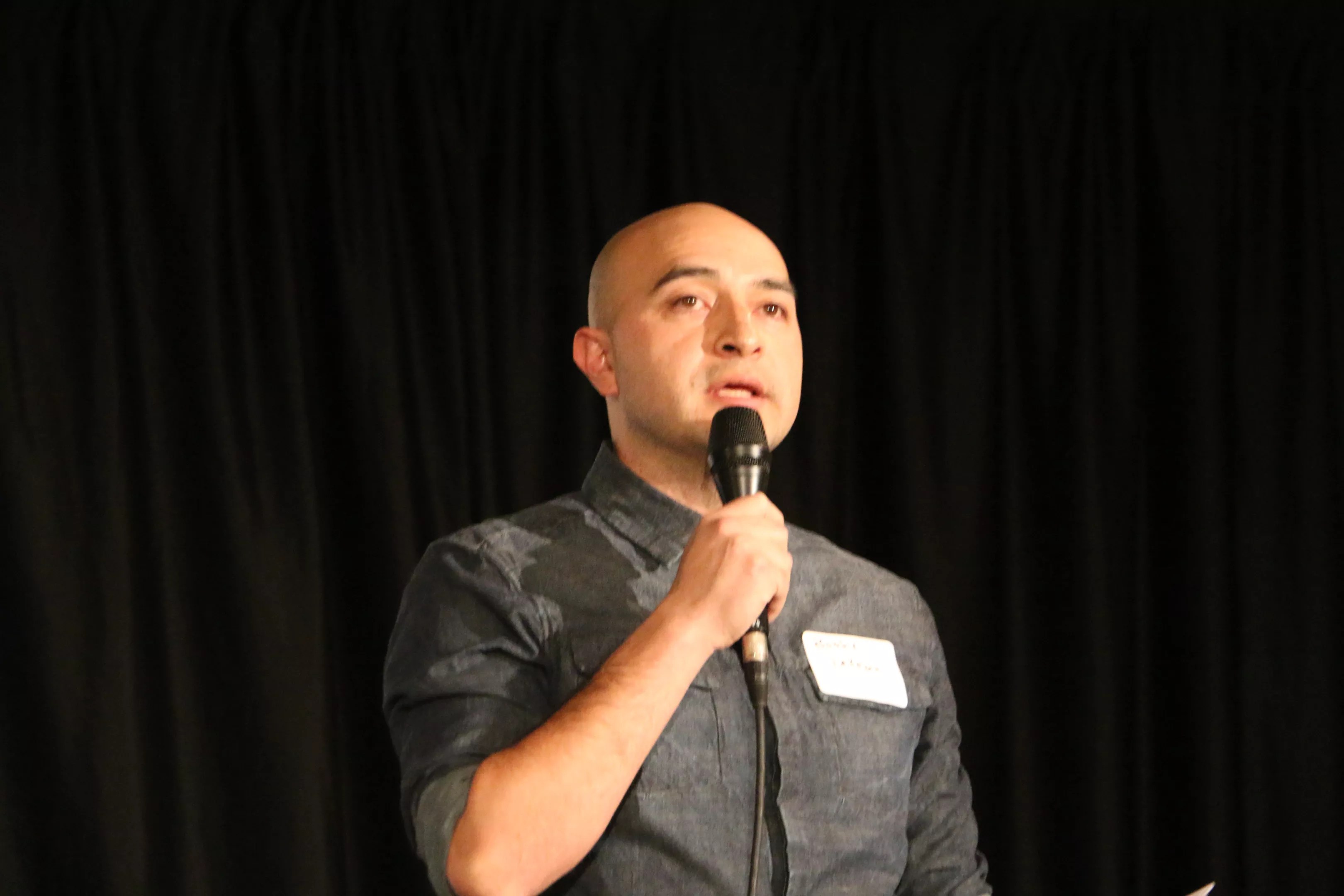
Poet Bobby LeFebre moderated Wednesday night’s discussion.
Kyle Harris
The conversation was moderated by Cafe Cultura founder Bobby LeFebre, who has long railed against gentrification, runs his own community-based news site, We Are North Denver, and serves as a co-chair of the Denver Commission on Cultural Affairs. Straddling the radical political art scene and city government put him in a tense position Wednesday night, in a conversation where city officials said they were trying to help out the very same people they had recently booted from their homes.
LeFebre set an unapologetically political tone early in the night in front of city brass and District 9 City Councilman Albus Brooks, who sat quietly in the front row, taking occasional jabs from the crowd for his support of the homeless sweeps and what critics call his cuddly relationship with developers.
“As an artist, I think it would be really irresponsible for me to stand up here and not address our city’s affordability crisis and to talk about the ways in which that affects everything we’re going to talk about today,” LeFebre said. “Many of us stand and watch the gentrification of our neighborhoods. We watch as these cranes start towering over our city. We watch the luxury condos or apartments being built.”
LeFebre said that he and many in the room fear that they are “being left out of the blueprint of the shiny new city that’s being erected around us.”
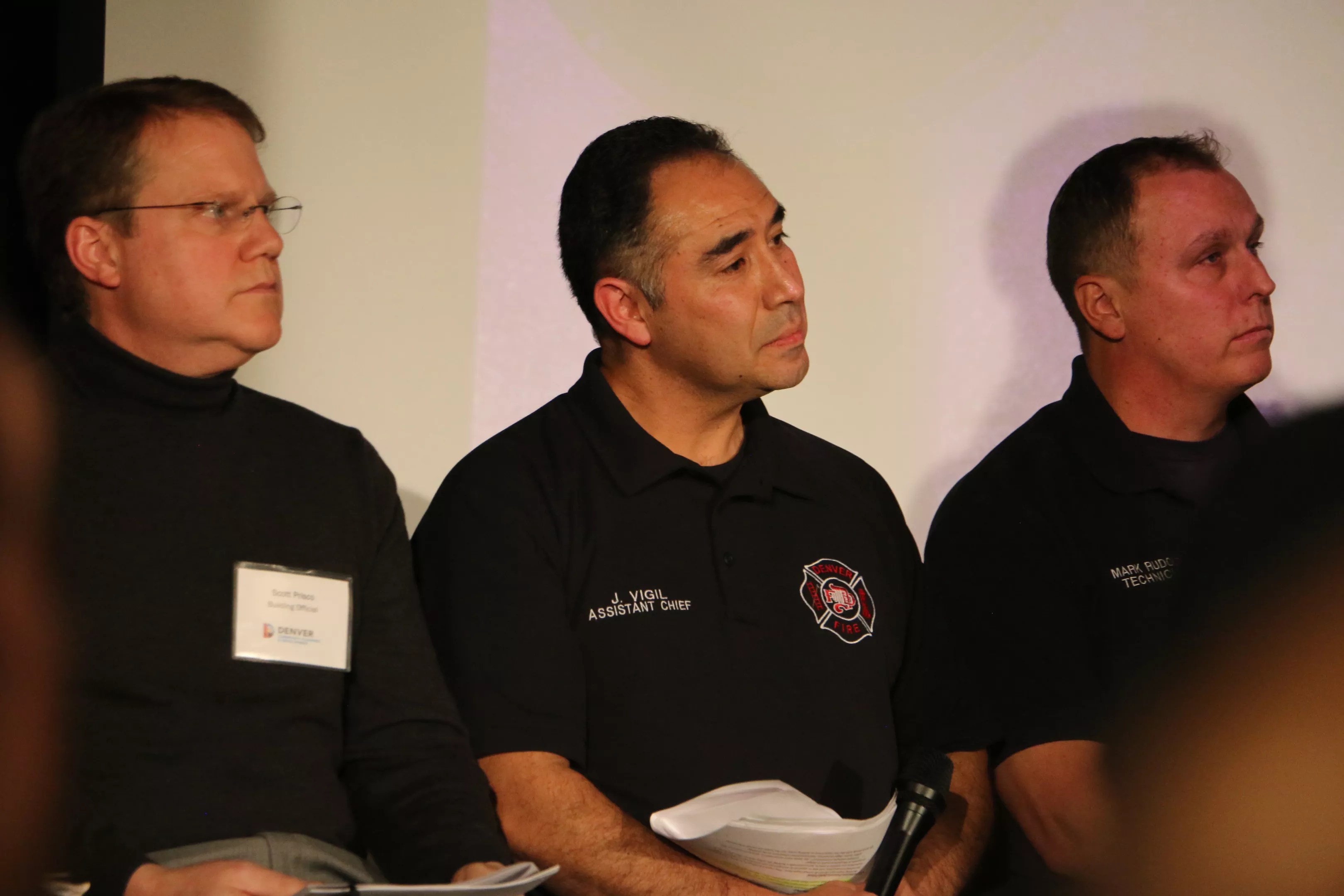
Scott Prisco, a building official with Denver Community Planning and Development, Jeremy Vigil, assistant chief of the Denver Fire Department, and Mark Rudolph, a fire department technician, listen as representatives from DIY advocacy group Amplify Arts Denver talk about why the DIY scene matters.
Kyle Harris
Laura Conway and Madeline Johnston, members of Amplify Arts Denver, a DIY community advocacy group that formed in the wake of the Rhinoceropolis and Glob evictions and held its first public meeting last week, spoke poetically about why the DIY scene saves lives and is a vital, “holy” force in the city. As Johnston — a luminary experimental musician — tells it, Rhinoceropolis was a space that provided outsiders and outcasts a sanctuary in which to create.
One question many in attendance wanted answered: Why were Rhinoceropolis and Glob targeted by the Denver Fire Department?
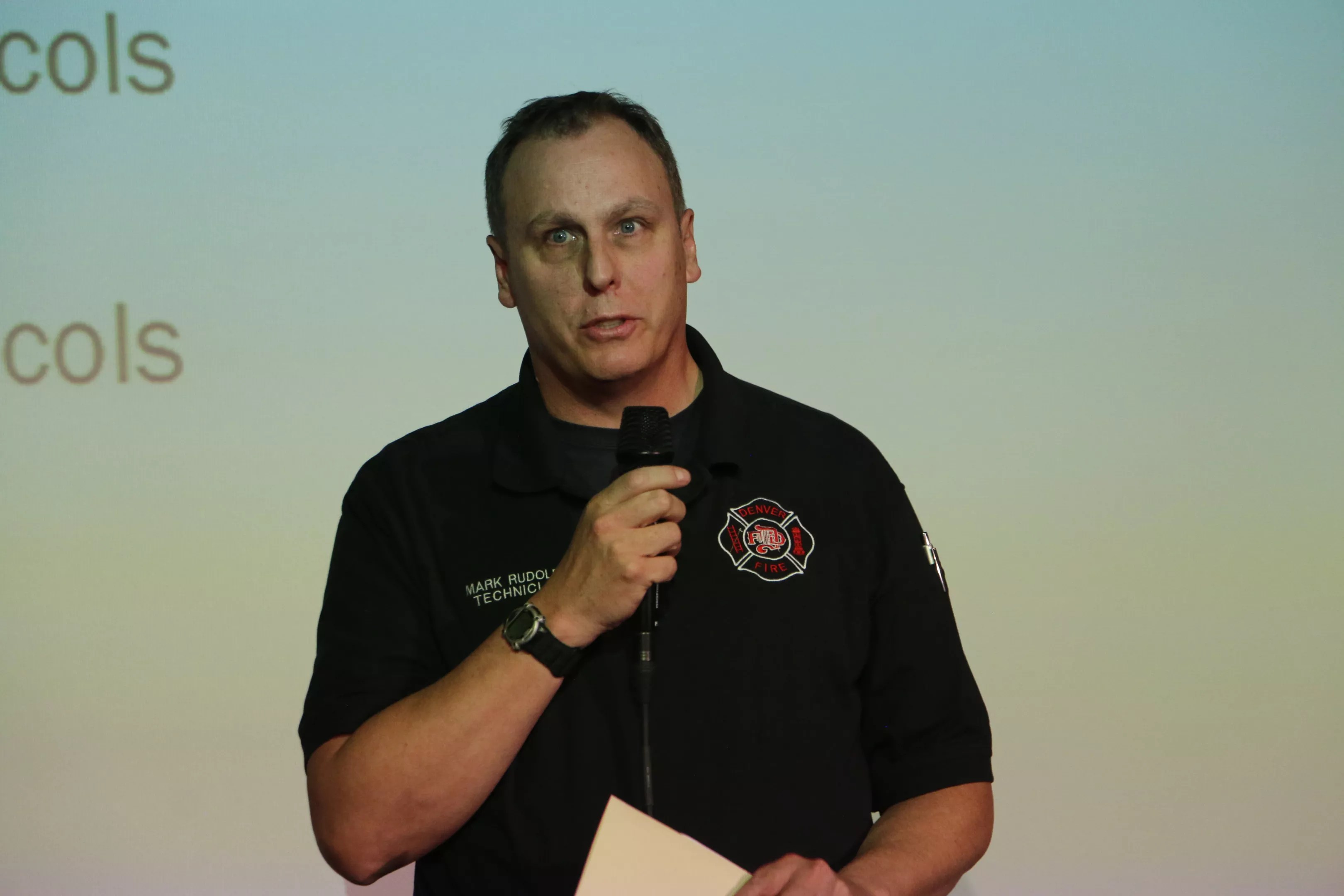
Denver Fire Department technician Mark Rudolph explains why his failures to be a rigorous inspector that led to fatalities inspire him to be a tough fire-code enforcer.
Kyle Harris
Those venues weren’t targeted or raided, said Jeremy Vigil, an assistant chief. He said the spaces were inspected because the department was tipped off by police, who found out about the spaces via the Department of Excise and Licenses. They weren’t shut down in an effort to put out artists, but because “lives matter,” Vigil said.
Mark Rudolph, a fire-department technician who inspects buildings for fire-code violations, made self-deprecating jokes about his public speaking skills before listing, with tears in his eyes, times he has failed as an inspector and made code-enforcement calls that led to deadly fires. As he told it, shutting down Rhinoceropolis and Glob wasn’t about targeting DIY spaces and kicking artists out into the cold — it was about ensuring neither the residents nor his fellow firefighters died.
As Rudolph and Vigil tell it, Excise and Licenses received an anonymous tip about the DIY spaces. Ultimately, the officials said it doesn’t matter where the information came from, because the city’s goal is to keep people alive.
But for those artist now experiencing homelessness, knowing the source of the call does matter. Was it a concerned community member, a vindictive person who had been banned from the space, a police officer undergoing an investigation into the DIY scene, or the worried parent of a teen who had been attending DIY shows?
Vigil and Rudolph insist the fire department is not targeting or researching DIY spaces. It keeps no list of such venues, and the officials couldn’t say how many exist in town. As far as they know, only four have been inspected after the Ghost Ship fire: Rhinoceropolis and Glob, which were closed, Juice Church, which was cited for safety violations but which the city did not shutter, and Seventh Circle, which passed its inspection.

Jill Jennings Golich, deputy director of Denver Community Planning and Development, and building official Prisco implored people to work with the city and report any unsafe conditions in their own spaces.
Kyle Harris
Denver Community Planning and Development Deputy Director Jill Jennings Golich says her team isn’t targeting DIY spaces, either. But nobody at the meeting could say for sure whether the Denver Police Department was targeting DIY venues. The police — who triggered the inspection of Glob and Rhinoceropolis and are the subject of a recent Westword cover story about their use of social media to survey activists — were not invited to the event, which was designed to be an information-gathering session.
The police department has not responded to an inquiry from Westword for this story.
The forum was nothing more than a regurgitation of the city’s status quo and a cynical publicity stunt, says Matt Slaby, a documentary filmmaker, photographer and member of Amplify Arts Denver. As he tells it, the city should have provided the people most impacted by the fire department and police “raids” on DIY spaces a physical seat on the panel, a role in organizing the event, and ample time for discussion.
Slaby and his group were so convinced before the event that they would be denied any opportunity to speak or ask questions that they shot out a vitriolic press release condemning the city before the event ended. The statement hit journalists’ inboxes long after the two Amplify Arts Denver members spoke and around the time the crowd was restlessly sitting through a question-and-answer session in which everyone was invited to speak.
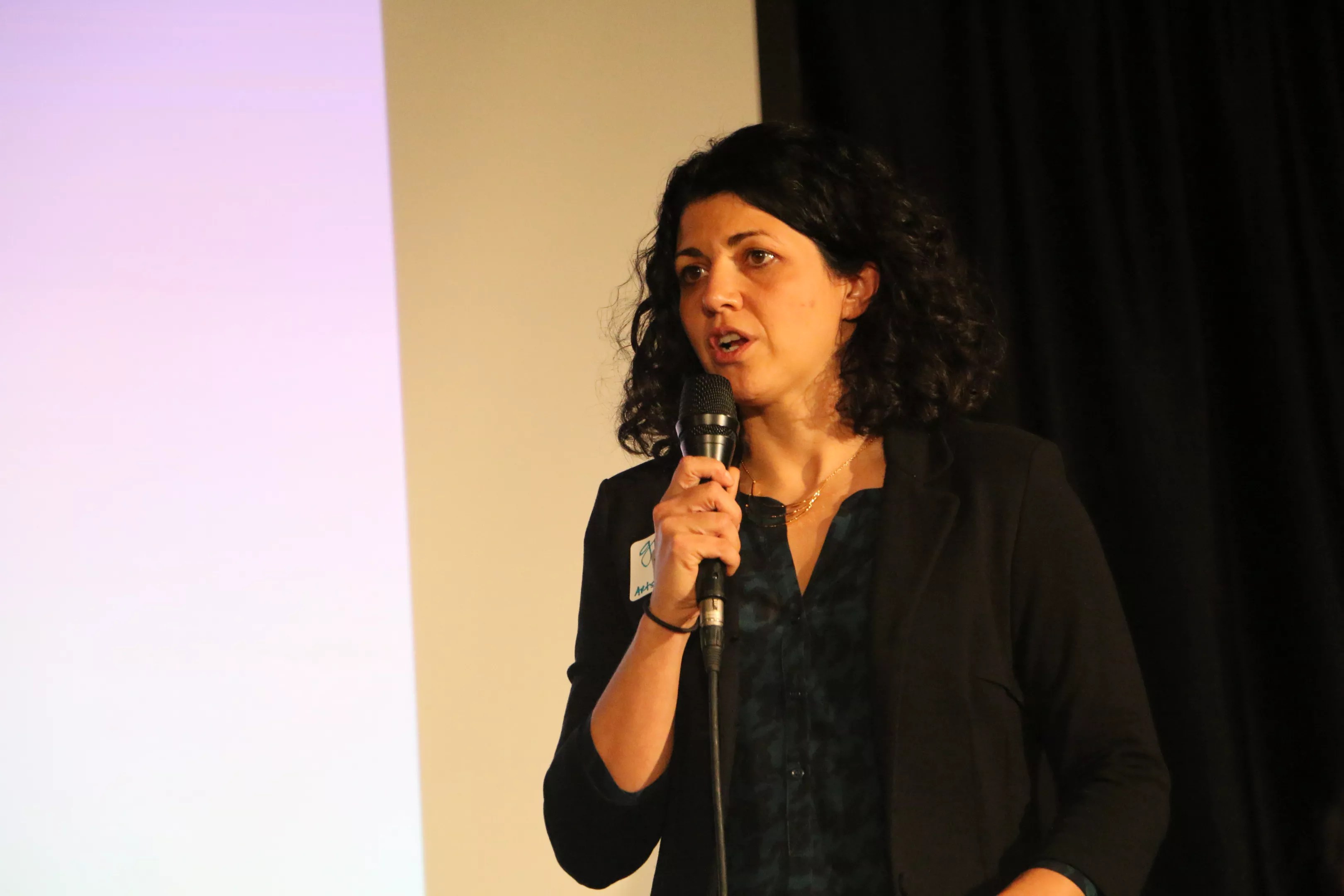
Ginger White, deputy director of Denver Arts & Venues, said she was grateful Amplify Arts Denver exists, because the city finally has a partner to work with.
Kyle Harris
In one of the more powerful statements in the question-and-answer period, longtime Denver artist Lauri Lynnxe Murphy, a Westword contributor and a member of Amplify Arts Denver, thundered, “We built this town.” She said the city owes artists resources if it wants them to stay.
Murphy scolded Ginger White, the deputy director of Denver Arts & Venues, for spending years constantly inquiring into the needs of the arts community — which, as Murphy has long voiced, have been housing and funding — without doing anything substantive about it. Murphy’s demand: Stop asking what needs to be done. Just do it.
The prematurely released statement from Amplify Arts Denver quoted Murphy: “The city basically held a meeting to restate its broken status quo. They wouldn’t take our questions and refused to allot us reasonable space for comment. This was nothing but a publicity stunt to improve the city’s image after they kicked us out of our homes.”
But that statement contradicted what actually happened. In the meeting, Murphy took to the mic. City officials responded. The audience had double the time scheduled for comment.
About the meeting and Amplify Arts Denver’s statement, White said, “It’s unfortunate that’s how it was characterized.” By no means is the press release a deal-breaker for White, whose department is meeting with Amplify Arts Denver members on Friday, January 20.
White says the forum went as well as it was expected to go, and that she was glad the DIY community had the opportunity to voice its mistrust and anger at the city.
As to Murphy’s pointed comments about White’s failure to take concrete action, the city arts administrator points to multiple projects that Arts & Venues has pushed aimed at securing housing over the years that have been torpedoed by the Great Recession and other “macro-economic” trends. The city plans to set aside $20,000 to assist safe arts spaces. What that money will be used for, specifically, has yet to be decided.
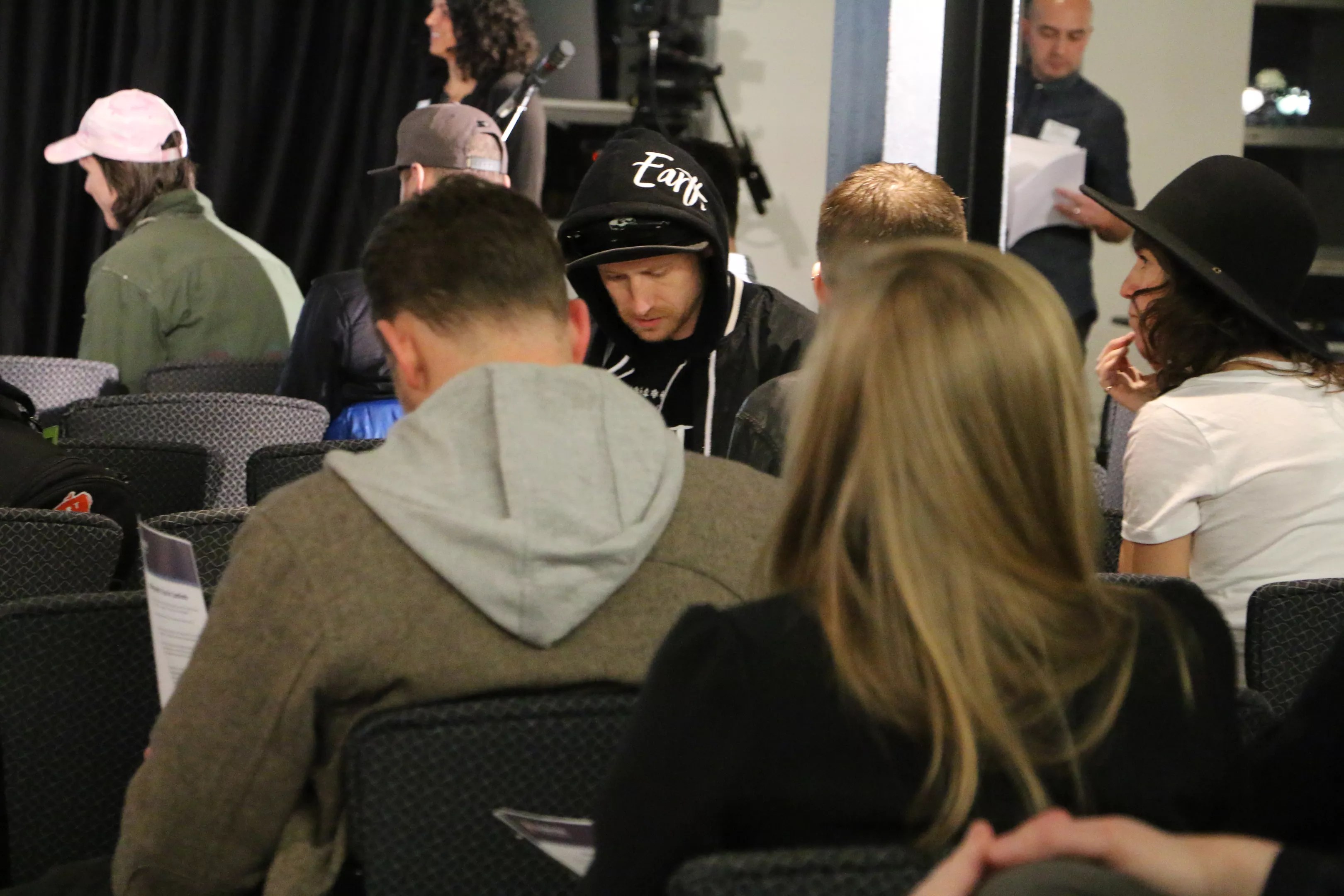
The audience gathers for Wednesday night’s meeting.
Kyle Harris
The Amplify Arts press release also failed to acknowledge the highlight of the evening: Two young people hijacked the microphones and turned the first part of the question-and-answer period into an anarchic, experimental beatbox intervention, exploding with joy and rage. The mostly wordless performance caused city brass to fidget, an exasperated LeFebre to thank the duo for their performance, and the black-clad DIY arts supporters to cheer.
It gave many DIY-dwellers hope that while their spaces may have been shuttered, their creative, rebellious spirit lives on.
Correction, January 21: The city did not evict the residents of Juice Church and is working with the property owners to bring the space into compliance.